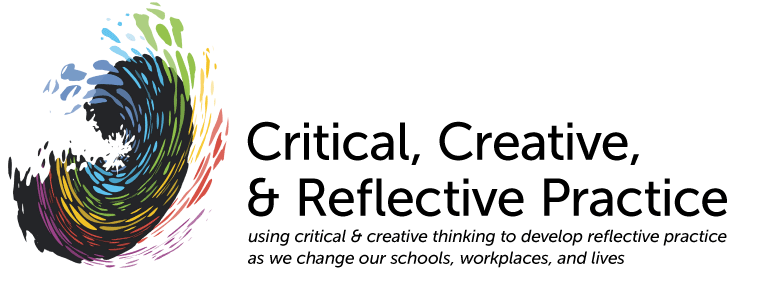Phase A—Overall vision
Goal
"I can convey who I want to influence/affect concerning what (Subject, Audience, Purpose)."
Processes
Iterative Development of
Governing Question and
Paragraph Overview of project through:
In session 1
Think-Pair-Share on:
- your area of interest
- the specific case(s) you plan to consider
- the more general statement of the problem or issue beyond the specific case
- how you became concerned about this case/area
- what you want to know about this case/area by the end of the semester
- what action you think someone (specify who) should be taking on this issue
- what obstacles do you foresee and help you might need in doing the research
- who the audience for your research report might be
Initial written expression of:
Governing Question and
Paragraph Overview of proposed project.
- For the very first stab at this, read the descriptions below just once. You will develop a better idea of Governing Questions and Paragraph Overviews by revising in response to comments. The point of this exercise is not to have your project defined straight away and stay with that, but to begin and then to continue the process of defining and refining it.
Governing Question
The Governing Question is not your thesis, but what you need to investigate to make progress in your project. It should be expressed in a way that orients your work, e.g., "In what ways can approaches for effectively teaching empathy-based personal interaction be combined into a course for employees and managers?" or "What do I need to know to influence people who prescribe or seeks drugs for behavioral modification of children?" or "What teachers, theories, organizations, examples can provide models for me to experiment with and make my own so that..." The Governing Question should focus you on what you need to find out that you don't already know or can't yet demonstrate to someone else. It should be grounded in what
you need to know to get engaged in your specific circumstances, not what some generic person ought to know. Keeping the Governing Question in mind as you do research will also help guide you through the complexity of possible considerations so that you more easily decide priorities about what to read, who to speak to, and, in general, what to do in your project.
The gap between the Governing Question and the
Paragraph Overview (see below) is often a very good diagnostic of unresolved issues about your subject, purpose, and audience. When you write about your project--whether at the early stages, such as in an
Annotated Bibliography or in the later stages of preparing a draft report--put your Governing Question at the top of your first page, like a banner; this helps remind you to check that what you are writing sticks to what you intended or claimed to be writing about—You're not waiting for another reader to point out discrepancies. If the Governing Question and what you are writing don't match, something has to be reconsidered.
Paragraph Overview
In a single paragraph (not a set of bullet points), orient readers to your project, that is, where you're going (i.e., what steps in investigation) and where you're intending to take your intended audience. In so doing convey your audience, subject, purpose: Who you want to reach? What you want to convey to them? Why do
you want to address them about that? (The topic may be worthy, but what makes
you a person to address it.) Some autobiographical info or personal motivation may help. The
Governing Question could be woven into the paragraph or even lead it off.
Sharing of Written Work: Read your paragraph to the group to hear how it sounds shared out loud with others.
After session 1
Freewriting Try out free-writing for 10 minutes at least a few times a week. See free-writing topics on the course website and chapters 1 and 2 from Elbow regarding the interplay of the creative and the critical in thinking and writing.
One-on-one Session: Discuss your ideas with advisor (a.k.a. instructor) in office hours or a phone conference.
Models from Before: Review previous reports to get a sense of the scope of previous projects and the look of the final products.
Sharing of Written Work: Keep sharing your written work with peers -- see Elbow, Writing with Power, chapter 3, for an evocative account of sharing. Note that sharing runs through the entire process of research and writing.
By session 3
Through
Dialogue around Written Work, that is, responding to comments from your advisor, arrive at revised versions of your
Governing Question and
Paragraph Overview of project. The point is not to have your project fixed by this point, but to begin the process of defining and refining it, a process that
continues iteratively, and to have a well-considered question and statement to guide your work and priorities as your move ahead and to guide the feedback others give you on your work. The paragraph may, several revisions later, find its way into the introduction of your report and the question may, somewhat shortened, be reflected in your report's title.
With each new phase
Iterative Development: Because your topic will change or be more focused as time goes on, take stock of that and begin subsequent submissions and work you share with the latest revision of your
Governing Question and
Paragraph Overview. Trying to write a tighter overview will also help to expose changes, gaps, and ambiguities in your project.
All Phases |
Next: Background information
